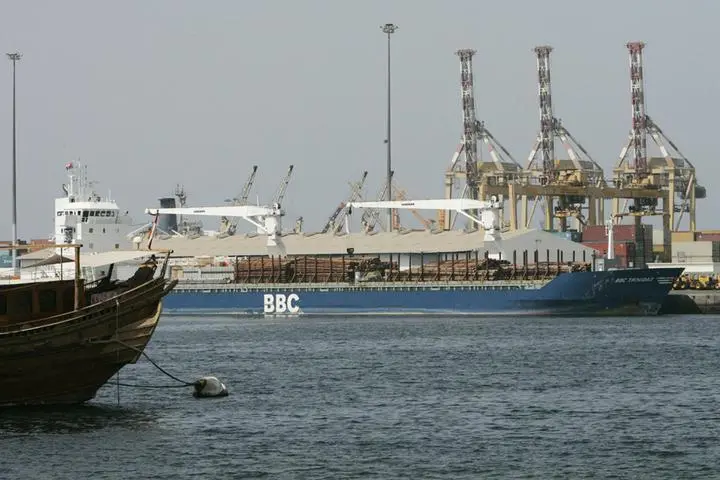PHOTO
Muscat - Oman's budget shortfall widened 59 per cent to RO2.54bn for the January-May period of this year against a deficit of RO1.6bn in the corresponding period of 2015, as government revenues were hurt by the slump in oil prices.
Public expenditure, meanwhile, dropped by nearly eight per cent during the first five months of 2016, statistics released by the National Centre for Statistics and Information (NCSI) on Tuesday showed.
While total revenues fell by RO1.07bn, or nearly 28 per cent, to RO2.78bn, total expenditure decreased to RO4.43bn from RO4.8bn.
The sultanate's budget factored in a deficit of RO3.3bn for 2016, against the actual shortfall of RO4.5bn last year.
The first five months of 2016 thus accounted for over 75 per cent of the budget deficit estimate for the whole year.
Net oil revenues plummeted 44.7 per cent to RO1.29bn in the first five months of 2016 from RO2.32bn a year earlier, while gas revenue decreased by eight per cent to RO546.2mn.
Oman's daily average oil output increased 3.1 per cent to 1mn barrels during the first half of 2016, but average oil price during the period fell to US$35 per barrel from US$59.3 in the same period of 2015.
Credit ratings agency S&P recently said Oman's fiscal deficit is expected to average 12 per cent of GDP in 2016 and 2017. S&P estimates that the combined fiscal deficit of GCC sovereigns will total over US$100bn, or 9.2 per cent of region's combined GDP, this year.
"As the consequences of a sharp fall in oil prices, GCC sovereigns, including Oman, continue to face the emergence of unprecedented fiscal financing needs," S&P said.
Revenues from custom duties jumped 135 per cent to RO176.7mn but corporate income tax collection dropped 13.3 per cent to RO319.8mn from RO368.8mn. Government's revenues from other sources fell eight per cent to RO450mn this year.
The sultanate's current expenditure dropped 9.5 per cent to RO2.94bn while investment expenditure rose by 17.3 per cent to RO1.26bn.
Expenditure on defence and security declined by nearly 15 per cent RO1.07bn and civil ministries' costs slipped 2.3 per cent to RO1.59bn.
Oil production expenditure fell 43.6 per cent to RO157mn, while investment expenditure on oil production was down six per cent to RO291mn.
On the other hand, current gas production expenditure jumped by 33.6 per cent to RO79.6mn and investment expenditure on gas production increased by 8.8 per cent to RO196.4mn.
Participation and support category, which also includes subsidies, witnessed a 53.6 per cent decline in expenditure to RO224.7mn compared to RO484.3mn last year.
© Muscat Daily 2016





















